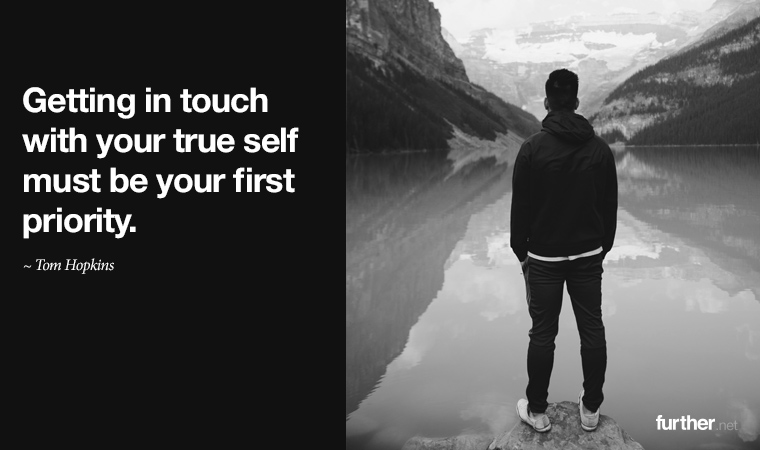
I’ve just started reading Essentialism: The Disciplined Pursuit of Less by Greg McKeown. It’s been out for a couple of years, but I guess I didn’t find reading it to be essential until now. 🙂
Here’s the essence of the concept:
- Only once you give yourself permission to stop trying to do it all, to stop saying yes to everyone, can you make your highest contribution towards the things that really matter.
Fair enough, but how exactly does that work? Here’s a nice summary:
- The way of the Essentialist means living by design, not by default. Instead of making choices reactively, the Essentialist deliberately distinguishes the vital few from the trivial many, eliminates the nonessentials, and then removes obstacles so the essential things have clear, smooth passage. In other words, Essentialism is a disciplined, systematic approach for determining where our highest point of contribution lies, then making execution of those things almost effortless.
I know this approach has become popular with many since the book’s publication. Author Michael Hyatt told me that this book changed his life, and his entire approach to his business.
I’ve always taken this approach with my business goals, although I somewhat thought it was based on some kind of personal limitation. I was never the one who bounced around from meeting to meeting, call to call, opportunity to opportunity. That said, I constantly explore opportunities, but remain extremely selective in what I pursue — and then I focus on that one thing relentlessly.
Apparently, that’s the heart of essentialism:
- One paradox of Essentialism is that Essentialists actually explore more options than their Nonessentialist counterparts. Whereas Nonessentialists commit to everything or virtually everything without actually exploring, Essentialists systematically explore and evaluate a broad set of options before committing to any. Because they will commit and “go big” on one or two ideas or activities, they deliberately explore more options at first to ensure that they pick the right one later.
It’s good to a a cool kid, I guess. But for many years I was perceived as standoffish and aloof because I said no more often than yes, because I wasn’t a “joiner.” Personally, I simply enjoy accomplishing the things I choose to pursue more than I desire social recognition (classic INTJ personality).
Regardless of your personality type, if you’re trying to do it all, the first thing you should do is stop trying — it doesn’t work. Then pick up McKeown’s book for some guidance on how to focus on what truly matters to you.
Essentialism: The Disciplined Pursuit of Less
Keep going-
Brian Clark
Further
further: health
Thick and Smooth
If you’re looking to shed some weight, consistency really is key: Thick, lower-calorie shakes can actually keep you fuller longer than higher-calorie, thinner shakes. Here are some delicious ways to bulk up your usual blend.
7 Ingredients You Should Add To Your Smoothie If You Want to Lose Weight
Might as Well Jump!
Working out with a trampoline can provide an equally effective calorie burn and cardio boost as running or biking, according to new research — but it might feel easier and more fun.
Trampoline Workouts Are as Effective as Running, But Feel Easier and More Fun
Fair Game
Tired of beef and chicken? Up your muscle-building protein intake with these nutritious and flavorful alternatives.
The 5 Best Protein-Packed Exotic Meats
further: wealth
Owner Mentality
The research is making one thing clear: if you want to stay employable in the future, you better take full ownership of your career. Otherwise, it will take ownership of you.
Own Your Career In 2017 (If Not, Research Shows It’ll Own You)
Office Space
It’s no fun to bump heads with a colleague. Office drama can really take a toll on productivity. Avoid the drama. Check out this infographic so you can know whether you’re in hot water with a colleague.
17 Ways to Tell if Your Colleague Hates You
Good *Or* Great
That anyone can develop as a leader is not in question. That said, great leadership and good leadership have distinctly different characteristics and paths.
The Difference Between Good Leaders and Great Ones
further: wisdom
Systems Thinking
In a series of studies published in the Journal of Personality and Social Psychology, in a task where managers were trying to detect an interviewee’s emotions, they assessed the situation more accurately when they thought systematically, rather than when they just relied on intuition.
The Best Headspace for Making Decisions
Self Love
We all tend to fall for the idea that self-criticism pushes us to perform better and to live up to higher standards. Yet we couldn’t be more wrong. Research shows that self-criticism is more akin to self-sabotage. It actually hurts our performance, productivity and well-being.
Science Says You Should Be Nicer to Yourself
Read This Later
Perhaps the most intriguing form of idleness is one nearly all of us are intimately familiar with: procrastination. The procrastinator is both contemplator and man of action, which is the worst thing to be, and which is tearing him apart.
Why Do Anything? A Meditation on Procrastination
further: sharing
Please forward this issue of Further to a friend who could benefit from it. Or use these easy social options:
